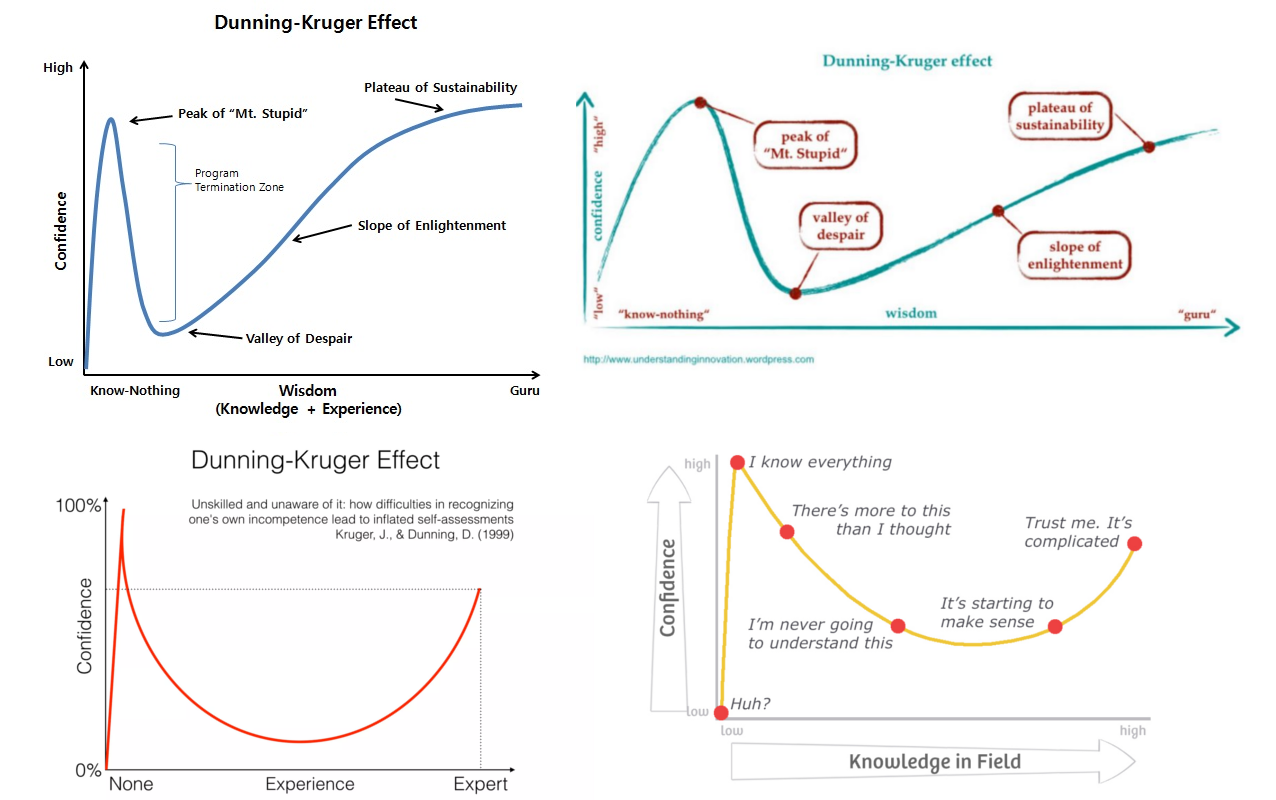The double Dunning-Kruger effect
Wikipedia defines the Dunning-Kruger effect as:
a cognitive bias in which people of low ability have illusory superiority and mistakenly assess their cognitive ability as greater than it is
Look it up on Google Images and you'll find various summary images, like these:
The basic idea is that incompetent people so irrationally overinflate their abilities that they think they are just as good or even better than experts.
And some of these figures are quite condescending. "Mt. Stupid", haha, imagine all the stupid people who are so stupid they don't even realize they are on Mt. Stupid! Those people must be really stupid, right?
But before being too condescending, we should take a look at the evidence behind the Dunning-Kruger effect. In the original paper as well as follow-up publications, the data looks like this:

That's Figure 1 from the original Dunning-Kruger paper, and others are similar.
It's quite a bit different than the stylized results from Google Images, isn't it?
Most notably, Mt. Stupid is gone. People with low skill do overestimate their abilities, but not to the point where they exceed high skill people, and there is no dropoff in confidence as ability increases.
Additionally, the Wikipiedia article also includes discussion of a skeptical viewpoint which suggests that even the original Dunning-Kruger result may largely be a mathematical artifact rather than a genuine effect.
This is all quite hilarious, because from what I've seen, the main reason the Dunning-Kruger effect is referenced is to say something like "look at all those idiots who are too stupid to realize they are on Mt. Stupid". When in reality Mt. Stupid doesn't exist. Oh, the beautiful irony.
I hope I'm not making some elementary mistake here, but if I am, please write a blog post about how doubly ironic that is.
References
Kruger, Justin; Dunning, David (1999). "Unskilled and Unaware of It: How Difficulties in Recognizing One's Own Incompetence Lead to Inflated Self-Assessments". Journal of Personality and Social Psychology. 77(6): 1121-1134. doi:10.1037/0022-3514.77.6.1121
Burson, Katherine A.; Larrick, Richard P.; Klayman, Joshua (2006). "Skilled or unskilled, but still unaware of it: How perceptions of difficulty drive miscalibration in relative comparisons". Journal of Personality and Social Psychology. 90(1): 60-77. doi:10.1037/0022-3514.90.1.60
Nuhfer, Edward; Cogan, Christopher; Fleischer, Steven; Gaze, Eric; Wirth, Karl (2016). "Random Number Simulations Reveal How Random Noise Affects the Measurements and Graphical Portrayals of Self-Assessed Competency". Numeracy. 9(1). doi:10.5038/1936-4660.9.1.4
